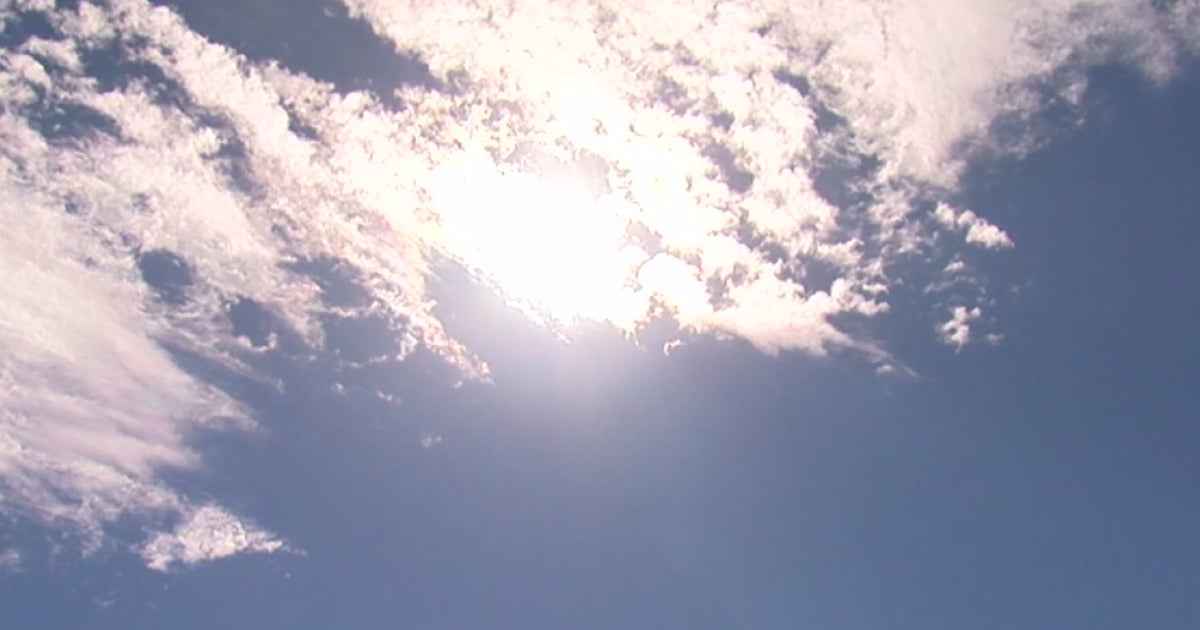U.N. warns world "way off track" as greenhouse gas levels set new records
Geneva — Greenhouse gas concentrations in the atmosphere reached new record levels last year, the United Nations said on Monday in a stark warning ahead of the COP26 summit about worsening global warming. The Greenhouse Gas Bulletin from the UN's World Meteorological Organization said the annual rate of increase last year was above the yearly average between 2011 and 2020 — and the trend continued in 2021.
The WMO said the economic slowdown caused by the COVID-19 pandemic triggered a temporary decline in new emissions, but had no discernible impact on the atmospheric levels of greenhouse gases and their growth rates.
The organization said that as long as emissions continue, global temperatures will continue to rise. And given the long life of carbon dioxide (CO2) in the atmosphere, the temperature level already observed will persist for several decades even if emissions are rapidly reduced to net zero.
COP26, the UN Climate Change Conference, is being held in Glasgow from October 31 to November 12.
"The Greenhouse Gas Bulletin contains a stark, scientific message for climate change negotiators at COP26," said WMO chief Petteri Taalas.
"At the current rate of increase in greenhouse gas concentrations, we will see a temperature increase by the end of this century far in excess of the Paris Agreement targets of 1.5 to two degrees Celsius above pre-industrial levels.
"We are way off track."
The greenhouse gases
The three major greenhouses gases are CO2, methane and nitrous oxide. CO2 is the most important, accounting for around 66% of the warming effect on the climate.
CO2 concentrations reached 413.2 parts per million in 2020, up 2.5 ppm, and is at 149% of the 1750 pre-industrial level, the WMO said.
The report said that roughly half of the CO2 emitted by human activity remains in the atmosphere, with the other half ending up in the oceans and the land.
"The last time the Earth experienced a comparable concentration of CO2 was 3-5 million years ago, when the temperature was 2-3C warmer and sea level was 10-20 meters [yards] higher than now. But there weren't 7.8 billion people then," said Taalas.
Methane averages reached a new high of 1,889 parts per billion in 2020, up 11ppb on the year before, and is at 262% of the pre-industrial benchmark.
Around 40% of methane is emitted from natural sources such as wetlands, while 60% comes from human activity, including rice agriculture and landfills.
Nitrous oxide averages reached 333.2 ppb, up 1.2 ppb, at 123 percent of 1750 levels.
Need to "revisit" our "whole way of life"
The WMO said that with continued rising greenhouse gas emissions, alongside rising temperatures, the planet could also expect more weather extremes.
That includes intense heat and rainfall, ice melt, sea-level rise and ocean acidification — all of which will have far-reaching socio-economic impacts.
"We need to transform our commitment into action that will have an impact on the gases that drive climate change," said Taalas. "We need to revisit our industrial, energy and transport systems and whole way of life. The needed changes are economically affordable and technically possible. There is no time to lose."
Euan Nisbet, from the University of London's Greenhouse Gas Group, compared greenhouse gas measurements to "skidding into a car crash."
"The disaster gets closer and closer but you can't stop it. You can clearly see the crash ahead, and all you can do is howl."
Dave Reay, director of the Edinburgh Climate Change Institute, said the report provided a "brutally frank" assessment of COP achievements so far: "an epic fail."



